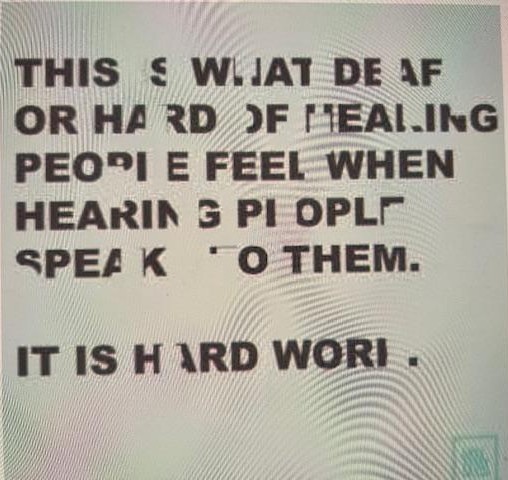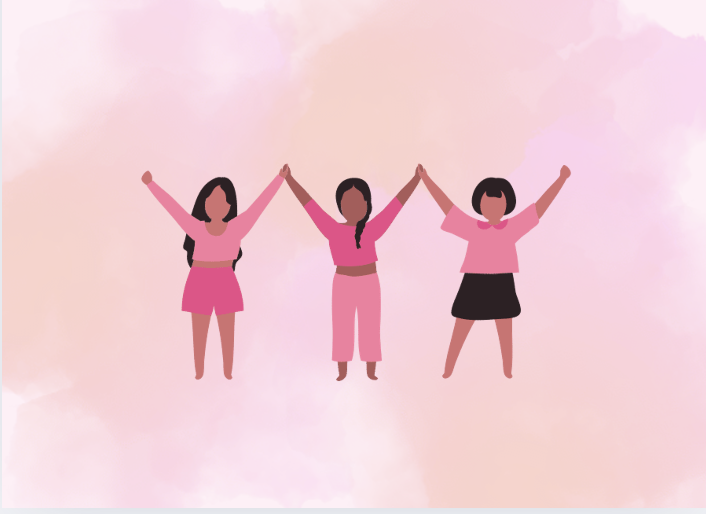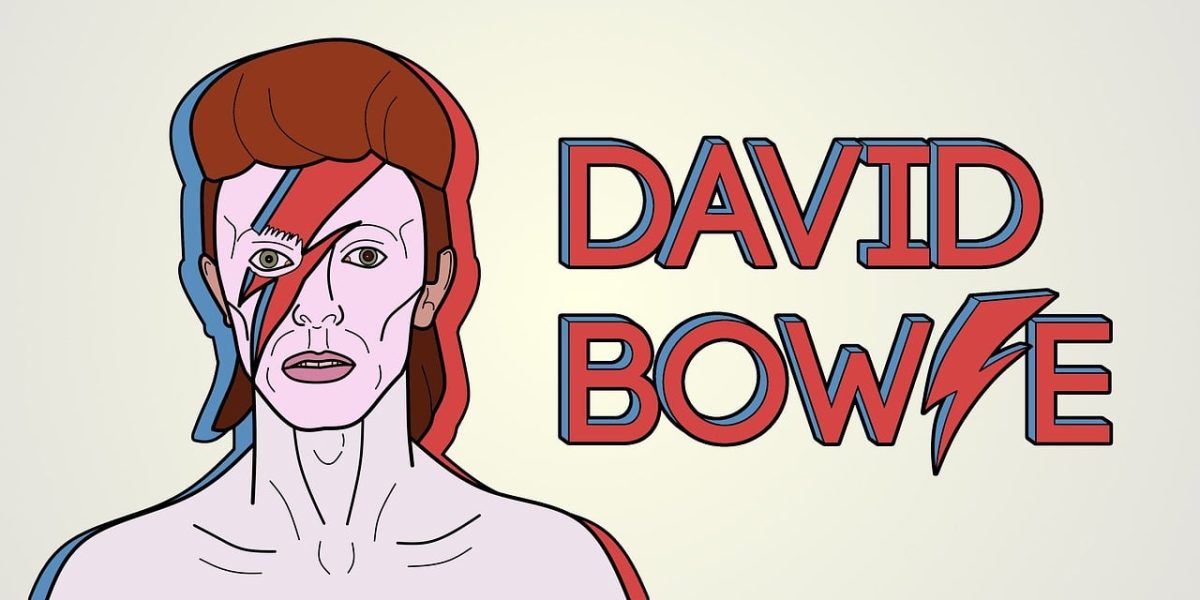An eating disorder is a mental disorder that involves a dangerous fixation on eating habits, exercise habits, and how the body looks. According to the National Institution of Health, “Eating disorders are serious, biologically influenced medical illnesses marked by severe disturbances to one’s eating behaviors.” Eating disorders severely affect people’s minds, bodies, and well-being no matter how extreme the disorder is for a certain person.
Eating disorders can be found in many different forms. There is anorexia nervosa, bulimia nervosa, binge eating disorder (B.E.D.), and avoidant restrictive food intake disorder (A.F.R.I.D). The most common eating disorders are anorexia, bulimia, and B.E.D.
Anorexia is an eating disorder that is caused by a severe restriction of food and sometimes excessive exercise that also involves a detrimental fear of gaining weight.
Bulimia is usually characterized by the habit of overeating and then purging afterward but can also involve excessive exercise after eating as well. Bulimia usually also comes with the overwhelming guilt after eating or purging.
B.E.D. is when someone often eats a lot of food in a short amount of time making them feel guilty and overly full. They often feel no sense of control when eating.
Lastly, A.F.R.I.D. is a condition where a person avoids certain foods and often holds back or restricts what they would normally eat on a daily basis more severely than someone who is just on a diet.
Even though every eating disorder is important and dangerous, many of them are looked over because the person either “looks like they don’t have an eating disorder” or they have a “ less severe” version according to the eating disorder stereotype society has put on people.
A common misconception when it comes to eating disorders is that they are physical illnesses or weight-determined illnesses, not mental illnesses. “Weight can be an indicator of an eating disorder, but it certainly isn’t the only one,” Illene Fishman states in the article “What are eating disorders”.
People believe that if you have for instance anorexia nervosa you have a certain look and behavior but the truth is there is no one sign of an eating disorder. There is no gender, age, look, or mental state that fully determines if the person has an eating disorder or not.
Every eating disorder causes different physical health issues such as headaches, fatigue, heart problems, thinning of the bone, anemia, dry and yellow skin tone, hair loss, brittle nails, severe constipation, and low blood pressure and can eventually lead to infertility and death depending on how chronic the situation is.
Even if someone has an eating disorder it does not mean they experience every health issue shown. Some may have a less severe version that does not mean it is not as dangerous.
An eating disorder does not just affect a person physically but mentally as well. People with eating disorders often feel anxiety, guilt, depression, change in personality, memory loss, constant fear of gaining weight, obsessive-compulsive disorder also known as OCD, anger issues, and isolation.
Another big problem that a lot of people with eating disorders suffer from is comparing themselves to others not only from a body perspective but a medical perspective. Most people feel like their eating disorder is not enough until they lose a significant amount of weight or become hospitalized.
They then often feel guilty and severely depressed after being admitted to a hospital so their eating disorder then makes them feel horrible for being in the hospital. In other words, their eating disorder screams at them to be in the hospital then screams at them to get out.
Not everyone that has an eating disorder is admitted to the hospital or has severe medical problems or weight loss so that makes them feel inferior and like they need to try harder to get to the point that other people are at even though theirs is just as important.
When someone does not meet the criteria for certain things in their mind it usually has a horrible impact on their mental state. They often compare themselves to others and use others as a goal weight or look.
Even if someone is at a really low point in their eating disorder and meets the public stereotype of what they should look like, they are still never “sick enough”. Saying they don’t feel unhealthy enough so they believe that they do not actually have an eating disorder because they are not hospitalized or underweight enough.
Being at a certain weight is not the only reason people develop eating disorders. Some are because of home life, bullying, stress, and just wanting to have control over everything they eat. That is where the OCD comes in.
When they feel like they have no control over everything else going on in their lives, they find that controlling what they eat is the last resort and therefore go into a constant spiral.
Many people with an eating disorder feel like they can’t ask for help or they don’t deserve any, so they stay silent and many times it can get out of hand with no help, so they fall into a rut they believe they can never get out of.
According to the Journal Of Eating Disorders “Many people with eating disorders respond well to treatment but a proportion, sadly, do not and they may develop a longstanding form of the eating disorder which has been termed SEED.” SEED stands for Severe and Enduring Eating Disorder. Most people that go into treatment are forced into it, so they are miserable and do not want to try to get better so their eating disorder just worsens over time.
Typically when someone suffers from an eating disorder it affects their personality at a drastic rate. They are more anxious, quiet, angry, distracted, and mellowed out. This usually causes a wedge between friendships because they can’t handle other people at the time and get annoyed very easily or they are too focused on what they are going to eat next and if they will at all.
It makes them hard to be around so people start to drift away from them because they either don’t know how to help them or they don’t know about it or don’t want to deal with it.
When someone has an eating disorder they are constantly competing with themselves and others. They will compare how they look to someone else, what they eat, their habits, and their self-control to others around them no matter if that other person is suffering through the same illness or not.
There are many triggers to an eating disorder such as stress, bullying, abuse, body dysmorphia, mental health issues, calorie counting, clothes, favorite foods, hearing about an eating disorder, going through personal problems or family problems, eating too much unhealthy food at a time, seeing current weight, or seeing or hearing about other people’s current weight or past weight that have also suffered from the illness. Some people call it their “sick weight” or fear foods.
What is a fear food? A fear food is a different type of food or brand of food that makes a person feel scared or anxious to eat because of either the amount of calories it contains, their lack of self-control around that food, or they see it as a food that will make you gain weight.
A fear food can be any type of food; it just depends on the person. It can range from something like their favorite food to something they know is high in calories.
A phobia that is often associated with eating disorders is Obesophobia or pocrescophobia. This is having an intense fear of gaining weight and taking extreme measures to handle it. This phobia is often associated with anorexia.
Body dysmorphia plays a really big part in eating disorders. As stated previously, someone could be at their lowest point and still see a completely different body than what is actually there. People with body dysmorphia either try to avoid mirrors completely or they are obsessed with body checking and how they look at all times.












